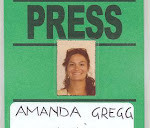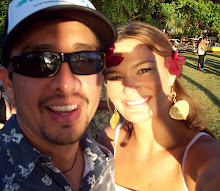While MidWeek Kaua'i was at work on a story about Justin Kollar, a county attorney assigned to the Kaua'i Police Department and Civil Defense, he declares his intention to run against his former boss for prosecutor. Here's a close-up look at who he is and what he hopes to accomplish
Introduced to the law when his uncle was murdered and the subsequent conviction overturned on a technicality, Justin Kollar takes justice as a personal duty and responsibility
Deputy County Attorney Justin Kollar has a passion for justice and a seemingly insatiable drive to achieve. Perhaps that’s why Kollar, currently assigned to the Kaua’i Police Department and Civil Defense Agency, is eyeing the prosecuting attorney’s seat in the 2012 election.
Kollar, who was a former deputy prosecutor (from March 2008 to October 2009) under current prosecuting attorney, Shaylene Iseri-Carvalho, will face a potentially tough election against his former boss, who enjoys name recognition and a loyal following as the incumbent and from her days as a county councilwoman. But Kollar believes he has what it takes to unseat her, which he says will require hard work, humility, trust and determination.
Attorney colleague Dan Hempey says the election promises “to be an interesting and debate-provoking race,” adding that, while both Kollar and IseriCarvalho are “talented and tenacious advocates, there are stark differences between the two.”
Justin Kollar in his KPD office. Amanda C. Gregg photo
Kollar also was recently named to the Supreme Court Board of Examiners, the entity responsible for determining who can practice law in Hawaii. Though he hasn’t yet been assigned to a committee, he is excited about his new responsibility.
“I’m honored to be able to have a hand in that,” he says, noting it won’t take anything away from his current role.
Kollar, who won’t discuss his prosecutorial run while on county time or in his county office, says being part of the board of examiners is something he’ll do in addition to his duties as deputy county attorney.
“I will do it at night or on the weekends,” he says.
That’s not all Kollar is up to on weekends this obon season, as some might have spotted him at island bon dances, enthusiastically participating in a tradition he first felt connected with when he moved to Honolulu in 2006.
“I remember feeling connected to my grandpa when I heard the iwakuni ondo (song),” he says. “Now, whenever I hear it, I think about those who worked so hard to get me where I am today.”
Kollar’s grandparents – his grandfather worked in a steel mill, his grandmother in a frozen food processing plant in Allentown, Pa. – raised him while his parents were working in the garment industry. Kollar says he has been intrigued by law since his childhood of fishing and hunting with his grandfather – though he didn’t begin law school until the age of 27.
With fiancee Sierra Hampton-Eng. Andrea Suzuki photo
“It is something that was in the back of my mind for a really long time, but I didn’t take any steps toward doing it until after college and working in the business world,” he says. “I was raised with a very service-oriented outlook on the world – that I need to be giving something back to my community – and I realized going to law school would give me a really wonderful skill set to do that.”
Kollar graduated cum laude from Boston University and went to Suffolk University Law, where he made the dean’s list four times. Perhaps it’s fitting that he completed his studies in Boston, as his parents were big fans of President John F. Kennedy.
“They raised me to kind of exemplify that attitude of giving back and not expecting your community to do things for you – to have a positive impact on the world around you and use that as a vehicle for a full and balanced life,” he says.
As deputy county attorney for the Kaua’i Police Department and Civil Defense Agency, Kollar says one of the things he’s most proud of is getting to train new employees, who often include police recruits and dispatchers. In the past, the department didn’t have its own legal adviser, so employees received less training in areas such as civil rights law and work-place violence.
“KPD is dealing every day with people who are at very stressful and emotionally difficult times in their lives, and employees have to be very careful about respecting the members of the community, respecting people’s civil rights and at the same time be able to do their job effectively,” he says.
Wedding bells are coming. Andrea Suzuki photo
Having just filed the papers to run for county prosecutor May 24, Kollar says he plans to use his existing relationships with law enforcement, the judiciary and the community to make all the parts of the criminal justice machine work together.
“I understand the importance of the relationships between these agencies and have worked hard to earn their trust,” Kollar says, noting if elected he would focus on “the core quality-of-life issues that affect every one of us.”
At the top of that quality-of-life list would be tackling the island’s methamphetamine and prescription drug abuse problems, along with the burglaries and thefts by addicts to support their habits.
It also would mean going after drunk drivers, as KPD handles roughly 300 OVUII cases (operating a vehicle under the influence of an intoxicant) each year – crimes he believes are among the hardest to prove.
He would make cold cases a priority, acknowledging they, too, are incredibly difficult to prosecute.
“For cold cases, you need talented and experienced detectives working closely with skilled and dedicated attorneys,” he says. “To be successful in this area, it hinges on your working relationships. The prosecutors and detectives need to be able to call each other at 11 o’clock at night or on a Saturday morning and say, ‘Hey, I’ve got an idea.’”
Kollar works directly with KPD and Civil Defense. Amanda C. Gregg photo
Cold cases hit home for Kollar, who knows firsthand what it’s like to be part of a family affected by a violent killing. On Jan. 23, 1985, his Uncle Andrew Kollar was shot and killed by a man named David Yohn.
“More than a decade later the conviction was overturned because the judge screwed up,” Kollar says.
“Prosecutors later plea-bargained the case rather than re-try Yohn. It was my introduction to the criminal justice system, and it’s why I believe so strongly in working to make sure we have a system that works with integrity. As long as there are families out there suffering because their family member has been taken from them, my job will never be done.”
If he were prosecuting Kaua’i's cold cases, Kollar would contract with special investigators and special deputy prosecutors who have experience in that kind of specific case to work collaboratively with KPD reviewing the files in order to get a fresh set of eyes on things.
“I would be working closely with Chief Darryl Perry and his team to make sure these cases are getting every resource my office can bring to the table,” he says.
Having a stake in the community also is key, and for Kollar it means keeping an open-door policy to the public.
“I would work with the community and listen to its concerns and conduct business in a transparent, open and honest way,” Kollar says. “Constituents are my bosses and I report to them, and government only works well if the public is informed and educated as to what it’s doing.”
Regardless of which way he will continue to serve the community, Kollar believes Kaua’i is a wonderful place to raise a family, which he plans to start after marrying his fiancee, Sierra Hampton-Eng, who teaches English at Island School.
“We consider ourselves blessed to be here at the start of such an exciting journey,” he says.
Iseri-Carvalho To Run Again
Editors’s note: This week’s cover story on Justin Kollar was planned before he announced his intention to run for prosecutor. In the interest of fairness, below are some highlights from Prosecuting Attorney Shaylene Iseri-Carvalho’s recent press release announcing she will seek re-election.
To read MidWeek Kaua’i's October 2010 cover story on Iseri-Carvalho, “Fighting For Victims Of Crime,” please see: www.midweekkauai.com/2010/10/fighting-for-victims-of-crime/)
In 2008, Shaylene Iseri-Carvalho, who had previously served two terms on the Kaua’i County Council, became the first female in Hawaii elected as prosecuting attorney. A Kaua’i native and graduate of Kapa’a High School and University of Hawai’i's William S. Richardson School of Law, IseriCarvalho has dedicated more than 20 years of her legal career to public service. She began by clerking for Judge Donald Tsukiyama in 1989, drafting memos for murder trials, and later served as a deputy public defender on O’ahu and Maui for four years.
She then returned to Kaua’i in 1996 and was appointed deputy prosecuting attorney. In her tenure as a deputy prosecutor, Iseri-Carvalho was recognized by the attorney general for having a 96 percent conviction rate for violent crime and sexual assault cases.
While in office, she has maintained a full, high-profile caseload of murder, sexual assault and felony cases. She also has made innovative changes in the way criminal prosecutions are handled within the county, and divided her department into units that specialize in sexual assaults, crimes against persons, drug crimes, property crimes, domestic violence and career criminal prosecution. Each unit has achieved and maintained conviction rates above 95 percent since being established in 2009.
“I’ve been a prosecutor for more than 20 years,” Iseri-Carvalho says. “I’ve dedicated my life to public service. I’ve been a prosecutor for almost 12 years and handled the most heinous kinds of crimes … That is my passion: ensuring all victims – especially sex assault victims – receive their day in court.”
Iseri-Carvalho is a member of the Law Enforcement Coalition, a group made up of police chiefs and prosecuting attorneys of Hawaii’s counties, the attorney general and the U.S. attorney for the district of Hawaii. She also implemented the “P.O.H.A.K.U.” project, which stands for Productive Optimism Helps All Kaua’i Unite, a diversion program that will allow non-violent misdemeanor offenders the opportunity to give back to the community through education and cultural community service projects in lieu of facing the traditional punishments of fines, probation and imprisonment.








